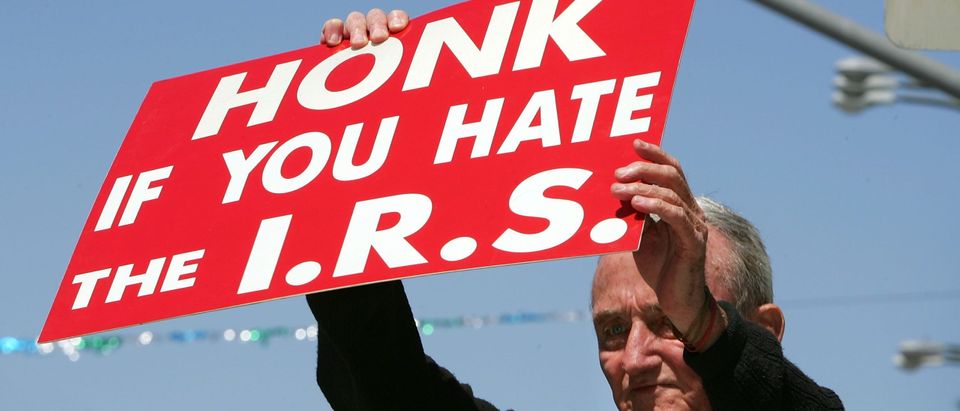Earlier this year, the IRS received a massive budget boost to the tune of $80 billion over the course of the next decade as part of the poorly-named Inflation Reduction Act (IRA). The majority of this enormous budget boost will go directly to the agency’s tax enforcement budget, which will increase by 69 percent over the next decade. But while Christmas came early for the IRS, the agency’s budget boost was justified by claims that have proven to be as hollow as they seemed when they were first made.
Back in April of 2021, IRS Commissioner Chuck Rettig provided his “personal opinion” that the tax gap – the gap between what taxpayers pay and what the IRS believes taxpayers owe – could have grown as large as $1 trillion annually. Credulous media outlets quickly fell over themselves to report the figure as gospel, often failing to emphasize that the statement was Rettig’s personal opinion unsupported by any data whatsoever.
Coincidentally, the commissioner’s statement was followed by a flurry of proposals to massively increase the IRS’s budget. President B iden pushed for $80 billion in new IRS funding, claiming it could raise $780 billion over the next decade. Senator Elizabeth Warren (D-MA) proposed $315 billion in new funding for an agency that couldn’t even process tax returns in a timely manner, claiming it could raise an incredible $1.75 trillion over the next decade.
But as politicians fantasized about limitless returns from increased enforcement, the underlying numbers remained far less exciting. Not only was Rettig’s statement not backed up by any data, the IRS’s own numbers contradicted it. Officially, the IRS estimated that the tax gap was a still-substantial but far smaller $381 billion.
And indeed, by the time Congress finally passed the IRA, the revenue to be found had come back down to earth. Officially, the Congressional Budget Office estimates that the $80 billion in additional IRA funding allocated to the IRS over the next decade will return a net of just over $100 billion — far less than President Biden’s $700 billion or the $1.4 trillion Sen. Warren somehow believed she could find.
Recent data gives no reason to believe the IRS will stumble upon the untapped gold mines President Biden and Sen. Warren expected. The IRS just released an updated estimate of the size of the tax gap last week, finding that the gap increased only at the rate of GDP growth. Projections for the next release show the tax gap actually shrinking relative to GDP growth.
What’s more, stepped-up enforcement does not yield “free money” as politicians seem to believe. It is found only through increased audits and hassling of honest taxpayers to find places other taxpayers committed tax fraud — or even just made an honest mistake trying to comply with our monstrously complex tax code.
This happens as often with lower-income taxpayers claiming refundable tax credits as wealthy taxpayers claiming deductions, as Democrats continually discover each time they push for added tax enforcement. The IRS has continually found that auditing low-income taxpayers is the most cost-effective way to increase tax compliance, as audits of refundable credits are easy and prone to find mistakes.
Increased IRS scrutiny can cost taxpayers who manage to do everything right as well. Proposals for funding increases have gone hand in hand with proposals to allow the IRS to snoop on taxpayers’ bank accounts and burdensome changes to online payment reporting. Meanwhile, the IRS continues to suffer from high-profile leaks of taxpayer information and identity theft cases by IRS employees.
Clearly the IRS needs reform, as evidenced by consecutive disaster tax filing seasons. But it must begin with making the IRS work better for taxpayers, not rewarding it for failure by throwing money in its direction. Policymakers must not allow themselves to be seduced by unsubstantiated promises of untapped revenue sources, and instead commit themselves to the hard work of fixing a broken tax agency.
Andrew Wilford is a senior policy analyst with the National Taxpayers Union Foundation, a nonprofit dedicated to tax and fiscal policy research and education at all levels of government.
The views and opinions expressed in this commentary are those of the author and do not reflect the official position of the Daily Caller.


